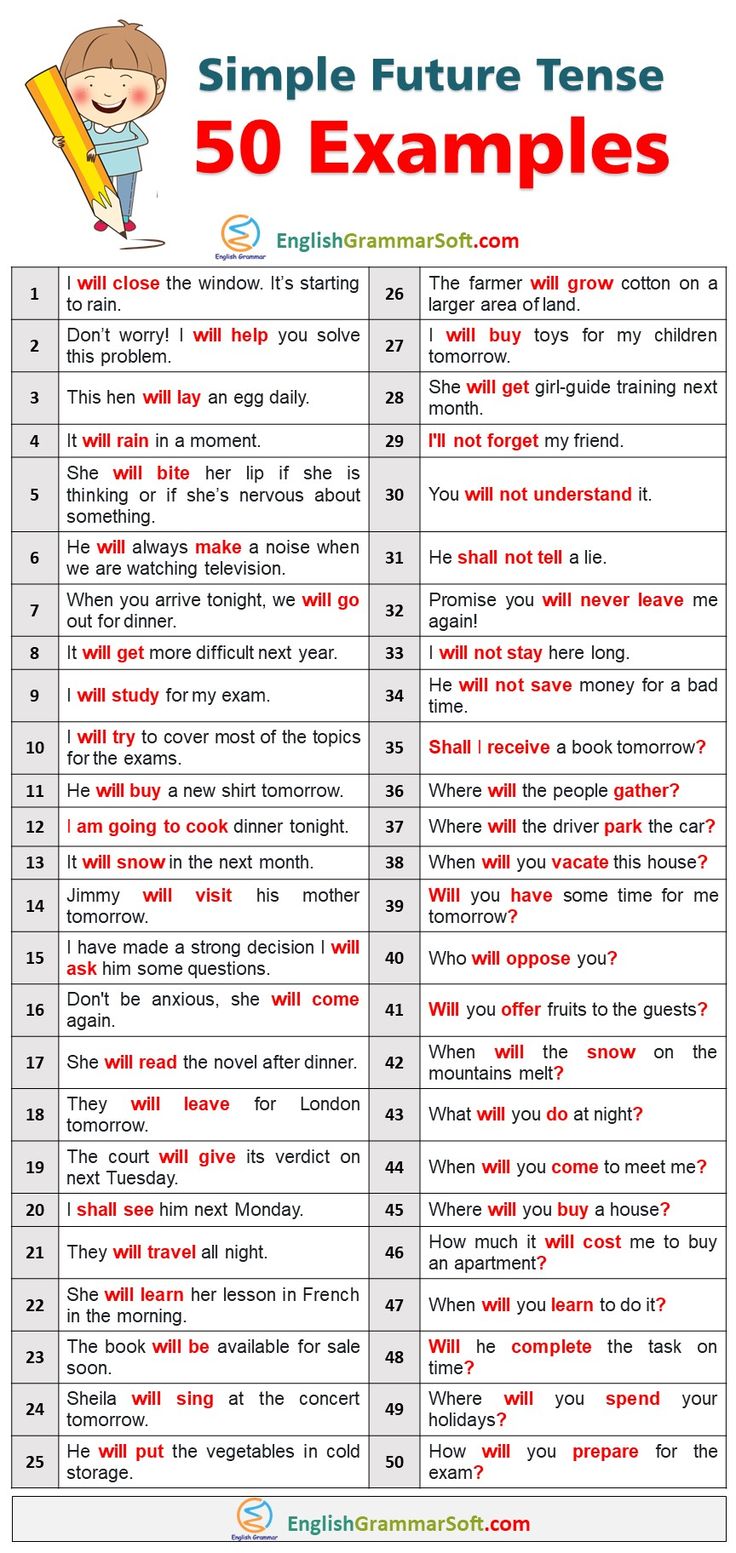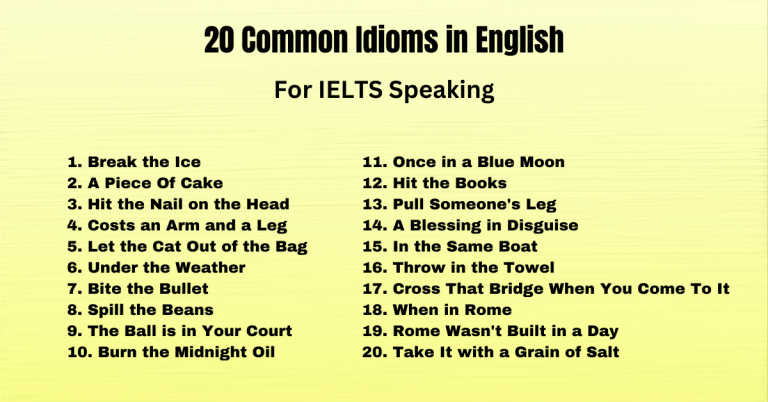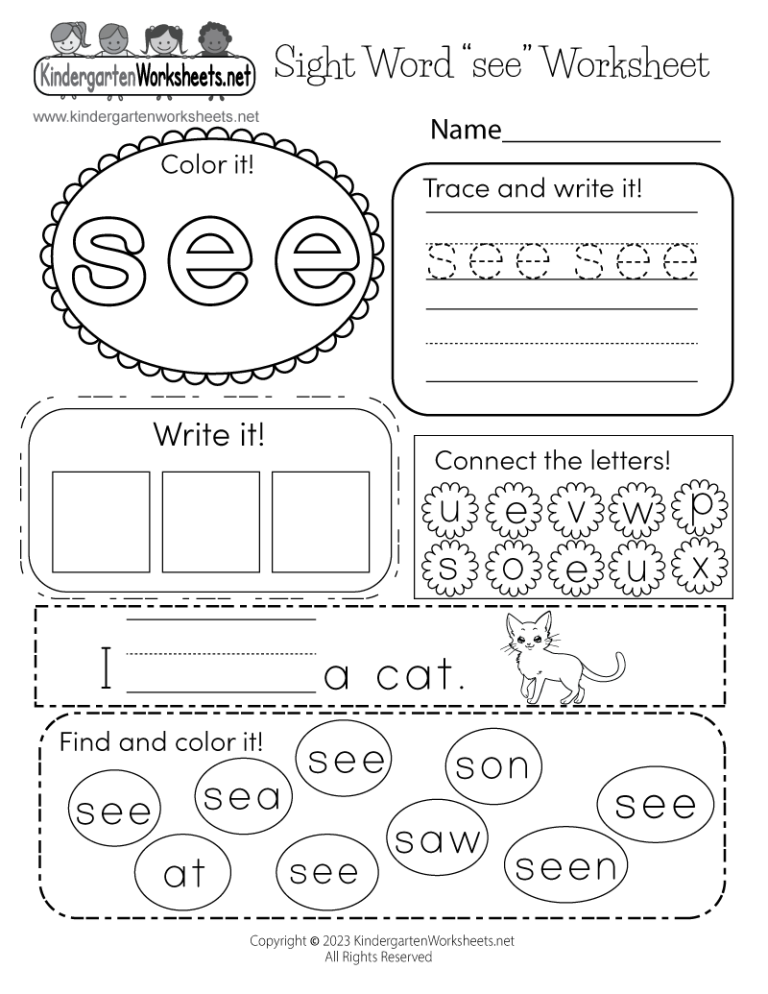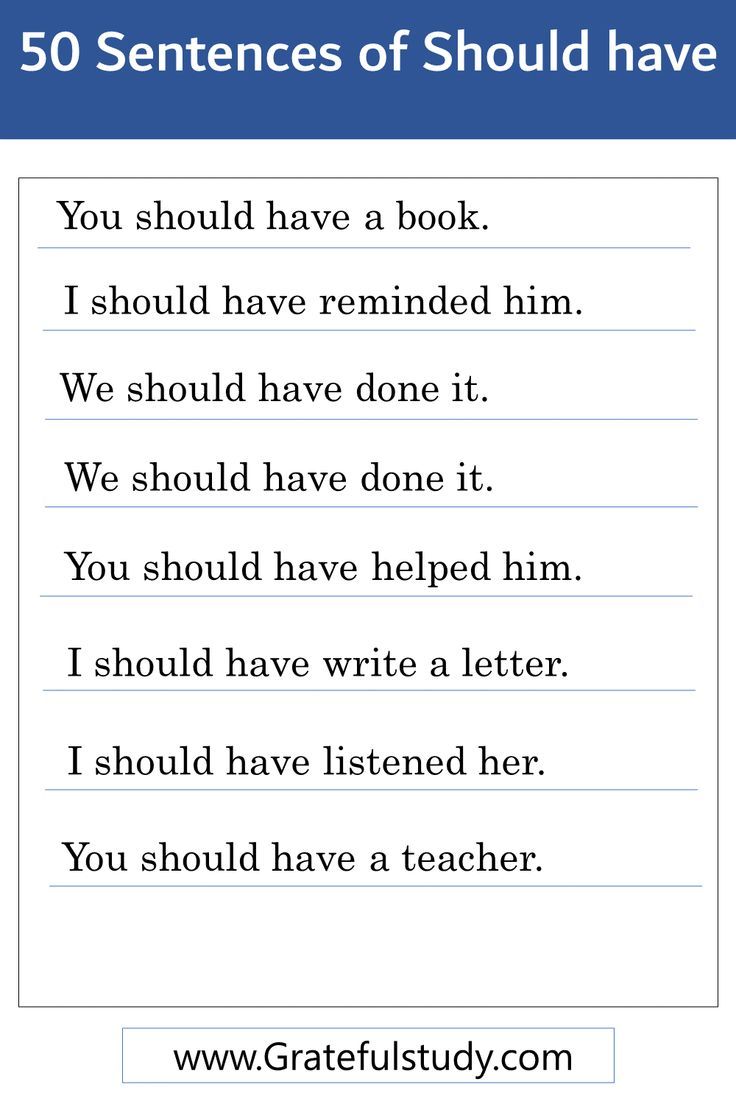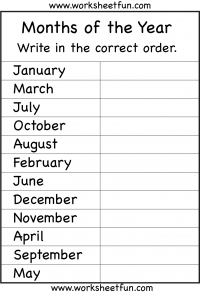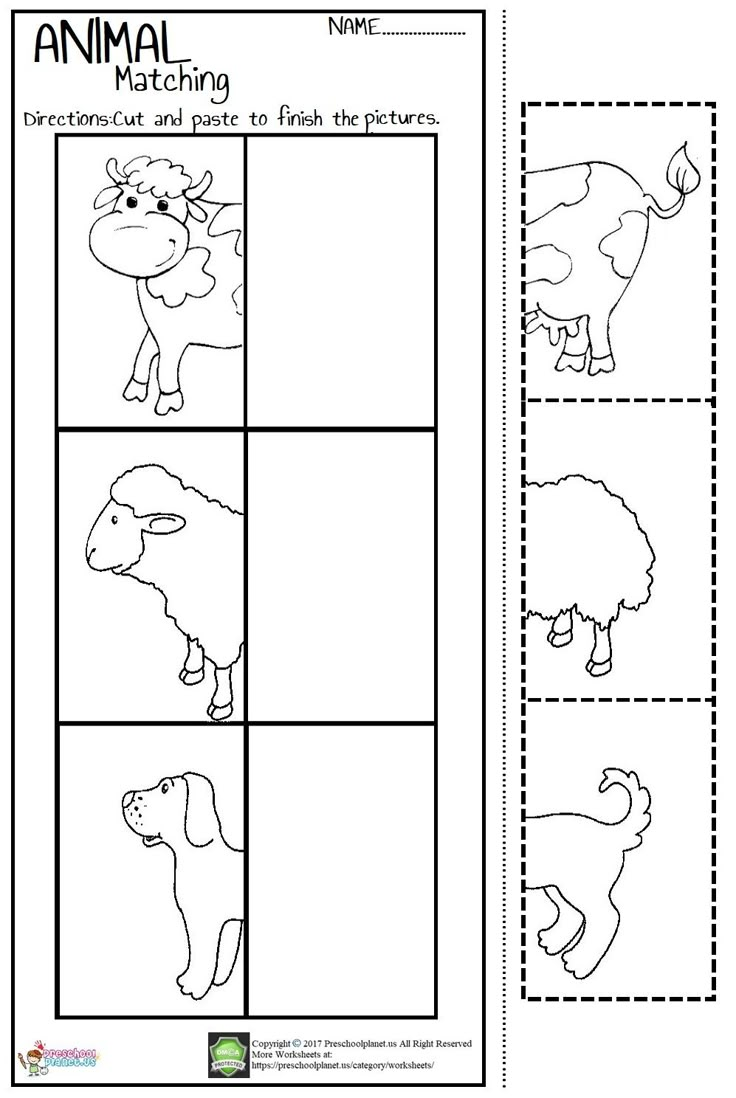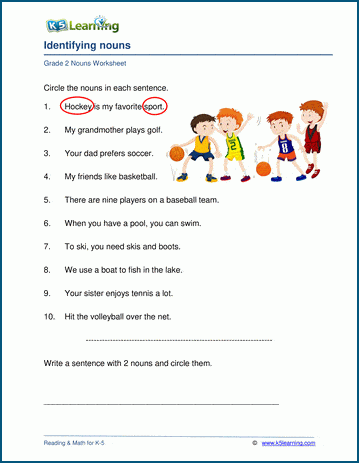50 Sentences of Simple Future Tense
Are you ready to master the art of the simple future tense? Imagine being able to clearly express your plans, hopes, and dreams for the future, all with ease and confidence.
In this blog post, you’ll discover 50 sentences that showcase how to use the simple future tense effectively. Whether you’re a student, a professional, or just someone looking to polish your language skills, these examples will be your go-to guide.
You’ll find yourself captivated by how straightforward and powerful the simple future tense can be. Dive in, and see how it can transform the way you communicate about the future.

Credit: www.pinterest.com
Simple Future Tense Overview
The simple future tense is used to talk about actions that will happen in the future. It is formed using “will” plus the base form of a verb. For example, “I will go.” This tense is often used for predictions or plans. You might say, “She will visit her grandma.” Questions are made by reversing the order, like “Will you help me?” Negative sentences include “will not” or “won’t,” such as “They won’t arrive soon.” It’s straightforward.

Credit: www.youtube.com
Structure Of Simple Future Tense
Will is used for predictions and promises. Example: “I will help you.” Shall is less common. It is used mainly with “I” and “we” for offers or suggestions. Example: “Shall we go?” Both words talk about the future. Will is more frequent in everyday speech. Shall is formal. Use will for most sentences. Shall can sound old-fashioned in American English. British English uses shall more often.
She will bake a cake. He will play soccer. They will go to school. We will visit grandma. You will finish homework. I will read a book. Dogs will bark at night. Birds will sing in the morning. The sun will rise tomorrow. Kids will dance at the party.
She will not bake a cake. He will not play soccer. They will not go to school. We will not visit grandma. You will not finish homework. I will not read a book. Dogs will not bark at night. Birds will not sing in the morning. The sun will not rise tomorrow. Kids will not dance at the party.
Will she bake a cake? Will he play soccer? Will they go to school? Will we visit grandma? Will you finish homework? Will I read a book? Will dogs bark at night? Will birds sing in the morning? Will the sun rise tomorrow? Will kids dance at the party?
Common Uses
It will rain tomorrow. She will win the race. The sun will rise at 6 am. They will travel to Mars someday.
I will buy that book. We will go to the park now. He will call you soon. She will help with the dishes.
I will always be there for you. We will help you with your homework. He will bring you a gift. She will make your favorite dish.
The train will leave at 5 pm. The concert will start at 8 pm. The movie will begin in an hour. The meeting will be on Monday.
Examples Of Affirmative Sentences
I will playsoccer tomorrow. She will read a book. He will take a nap. We will visit the zoo. They will eat ice cream. You will call your friend. The sun will shine bright.
My brother will go fishing. The cat will chase the mouse. Flowers will bloom in spring. The baby will laugh. We will paint the fence. Dad will cook dinner.
The dog will bark at strangers. I will learn to swim. Mom will bake a cake. The kids will draw pictures. We will watch a movie. They will dance at the party.
Grandma will knit a sweater. Grandpa will tell stories. The birds will sing. The rain will stop. I will play guitar. We will celebrate our victory.
Examples Of Negative Sentences
He will notgo to school tomorrow. She won’tplay in the park. We will noteat lunch at noon. They won’tvisit grandma next week. John will notcall his friend tonight.
Mary won’tbuy new shoes this weekend. The cat will notchase the mouse. The sun won’tshine on Sunday. My brother will notwatch TV later. The teacher won’tgive homework tomorrow.
Dad will notfix the car today. Mom won’tbake a cake. We will notgo on vacation. The kids won’tswim in the pool. The dog will notbark all night.
Examples Of Interrogative Sentences
Will they play soccer in the park? Can she finish her homework tonight? Will the train arrive on time? Will you help me with my project? Will he bring his new book to school? Is she going to bake a cake today? Are we going to watch a movie later? Will you call your friend this evening? Will the teacher check our assignments tomorrow? Can they fix the broken chair soon? Will you tell me a story before bed? Are they planning to plant a tree next week? Will you join the art class this summer? Can he come to the party on Saturday? Will we have ice cream after dinner?
Tips For Practicing
Daily practice helps you learn future tense quickly. Write five sentences every day. Use the future tense in your sentences. Keep your sentences short and simple. Check your work for mistakes. Ask a friend to review your sentences. You will improve with regular practice. Consistency is key to learning well.
Writing exercises boost your skills. Start with easy prompts. Write about your plans for the weekend. Describe what you will do tomorrow. Use words like will, shall, and going to. Try writing a short story. Use the future tense often. Share your story with your teacher or friend. Get feedback on your work.
Speaking activities make learning fun. Talk about what you will do next week. Practice with a partner. Take turns asking and answering questions. Use the future tense in your answers. Discuss your plans for a holiday. Try a role-play scenario. Pretend you are planning a trip. Speak clearly and confidently.
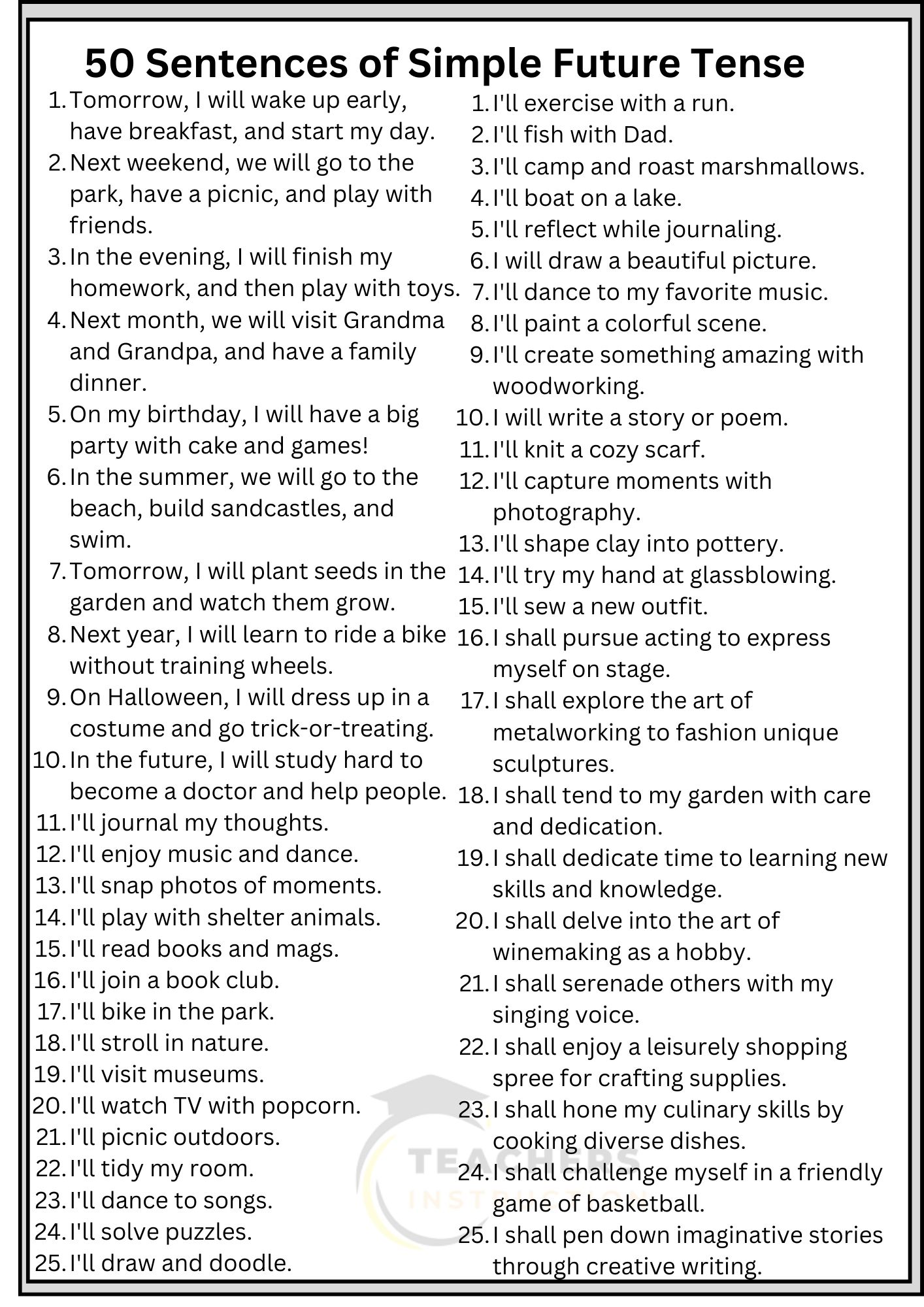
Credit: teachersinstruction.com
Frequently Asked Questions
What Is Simple Future Tense?
Simple future tense describes actions that will happen in the future. It is formed using “will” or “shall” followed by the base form of the verb. This tense is often used to express plans, predictions, promises, or spontaneous decisions. It’s a straightforward way to talk about future events or actions.
How Do You Form Simple Future Tense?
To form the simple future tense, use “will” or “shall” with the base verb. For example, “I will go” or “She will learn. ” This structure is consistent across subjects. It is commonly used for future intentions, predictions, and promises.
Can You Give Examples Of Simple Future Tense?
Yes, here are some examples: “She will travel tomorrow,” “They will meet us later,” and “I will finish the project soon. ” Each sentence clearly indicates an action that will occur in the future, using “will” followed by the base verb.
Why Use Simple Future Tense In Writing?
Simple future tense provides clarity when discussing future events or actions. It helps readers understand timelines and expectations. This tense is essential for setting plans, making predictions, and conveying future commitments. It enhances the readability and precision of your writing regarding future occurrences.
Conclusion
Exploring the simple future tense helps in planning and predicting events. It’s a crucial part of learning English. This tense allows you to express actions that will happen. Practicing these sentences improves communication skills. Understanding it can make conversations clearer and more effective.
Use these examples to grow your English proficiency. Remember, practice makes perfect. Keep trying, and soon it will become second nature. Don’t hesitate to use this tense in daily conversations. Enjoy mastering the future tense in English!
